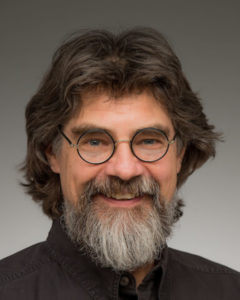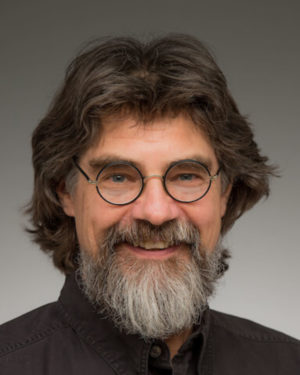Podcast: Play in new window | Download (Duration: 28:45 — 19.9MB) | Embed
Subscribe: Apple Podcasts | Spotify | Amazon Music | Android | Pandora | iHeartRadio | JioSaavn | Podchaser | Gaana | Podcast Index | Email | TuneIn | Deezer | Anghami | RSS | More

Episode 9 – The Liturgical Bridge to Mystery – Pathway to Sacred Mysteries with Dr. David Fagerberg Ph.D.
Dr. David Fagerberg and Kris McGregor discuss the sacred nature of liturgical spaces and the significance of liturgical practices. The physical church and its liturgical actions are consecrated, reflecting the life of the Trinity. Fagerberg references Abraham Heschel’s view on the sanctification of time, noting that spiritual living involves facing sacred moments rather than accumulating information.
Asceticism, involving self-discipline and purification of passions, is necessary for mystical union with God. Fagerberg describes this journey using stages: the active life (practical struggle against passions), the contemplative life (understanding the cosmos through divine revelation), and union with God (theology as participation in divine life).
The conversation also touches on the interconnectedness of these stages and how they reflect the order and harmony intended by God. Dr. Fagerberg uses metaphors and references to Eastern Christian thought to illustrate the spiritual transformation required for true liturgical participation and highlights the sacramental nature of marriage as a visible sign of Christ’s relationship with the Church and how liturgical worship restores our original capacity for holy sacrifice, leading us beyond the Edenic state into deeper union with God.
Here are some of the topics explored in this episode:
- Praktike (purgation)
- Physike (illumination)
- Theologia (union with God)
From the discussion with Dr. Fagerberg:
“What’s the right relationship between our asceticism and liturgical mysticism?
I thought I would write a book on liturgical acestism and then write a book on liturgical mysticism, so I could find out, but I finished them both, and I’m not sure that I’m done with it yet. I liked the key you gave in our earlier conversation that I don’t need to try to come up with a liturgical bridge to asceticism. And then another liturgical bridge to mysticism, liturgy is the bridge between those two. So if I walk the bridge of liturgy, I’ll find on the east end and the west end, the north end and the south end of this bridge, both of them, I know that mysticism awaits us at the end of asceticism, as I understood it from the tradition. And in that book (On Liturgical Ascetism), I primarily dealt with Eastern and Orthodox material. I understand mysticism to be at the end of it because when it goes through these stages of praktike, physike, and theologia, in order to arrive theologia which union with God. Well, what better definition of mysticism do I need? Um, mysticism must surely have some requirements of us in efforts of us. Well, yeah. Mysticism assumes asceticism, asceticism assumes mysticism, but if the emphasis is on a different syllable, it seems like one of them starts with the efforts required. With askesis, training, discipline effort we arrive at the mystery and the other starts with the mystery, but acknowledges that the purgation and illumination will precede this unification. I think they’re related. And I’ve got a number of metaphors for the relationship, but I don’t think enough of them yet. And they’re not entirely happy.”
Discerning Hearts Reflection Questions
- Significance of Sacred Spaces: How do the anointing and consecration of our churches enhance our understanding and appreciation of the Trinity’s presence in our worship spaces?
- Sanctification of Time: Reflect on how we can prioritize facing sacred moments over accumulating information in our daily spiritual practices.
- Relationship Between Asceticism and Mysticism: In what ways can practicing asceticism in our lives lead us towards a deeper mystical union with God?
- Stages of Spiritual Life: How can we recognize and nurture the interconnected stages of active life, contemplative life, and union with God in our personal spiritual journey?
- Role of Passions and Faculties: Consider how the proper ordering of our intellective, concupiscible, and irascible faculties can lead to a more harmonious and holy life.
- Sacramental Nature of Marriage: How does understanding marriage as a sacrament reflecting Christ’s relationship with the Church influence our view of marital union and family life?
- Restoration Through Liturgy: In what ways does participating in the liturgy restore our original capacity for holy sacrifice and deepen our relationship with God?
For more podcast episodes of this series visit the Pathways to Sacred Mysteries w/Dr. David Fagerberg page
David W. Fagerberg is Professor in the Department of Theology at the University of Notre Dame. He holds masters degrees from Luther Northwestern Seminary, St. John’s University (Collegeville), Yale Divinity School, and Yale University. His Ph.D. is from Yale University in liturgical theology.
Fagerberg’s work has explored how the Church’s lex credendi (law of belief) is founded upon the Church’s lex orandi (law of prayer). This was expressed in Theologia Prima (Hillenbrand Books, 2003). He has integrated into this the Eastern Orthodox understanding of asceticism by considering its role in preparing the liturgical person. This was treated in On Liturgical Asceticism (Catholic University Press, 2013). And these two themes come together in Consecrating the World: On Mundane Liturgical Theology (Angelico Press, 2016).
He also has an avocation in G. K. Chesterton, having published Chesterton is Everywhere (Emmaus Press, 2013) and The Size of Chesterton’s Catholicism (University of Notre Dame, 1998).






